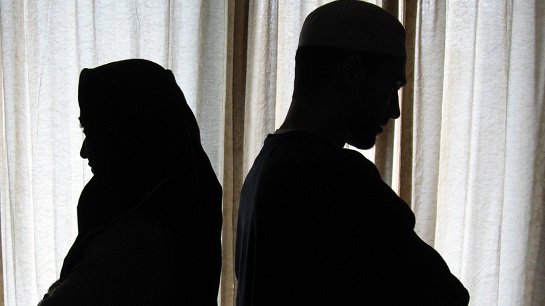Answered by Muftī Yūsuf Badāt
Question:
A husband who has dyslexia uttered the words of divorce (ṭalāq). He now says he did not understand the implications of his words. Can you please clarify if the divorce is applicable and effective?
Answers:
بِسْمِ اللهِ الرَّحْمنِ الرَّحِيْم
In the name of Allāh, Most Gracious, Most Merciful.
Jazāk Allāh Khayr/ Thank you for contacting Mathabah Institute.
Dyslexia is a learning and reading disorder which entails difficulty due to problems identifying speech sounds and learning how they relate to letters and words. Dyslexia does not necessarily entail problems with intelligence, hearing, vision or day to day activities. Some of the world’s great thinkers, entrepreneurs, celebrities, authors, and billionaires happen to be dyslexic.
That being said, the ṭalāq (divorce) pronouncement of a husband with dyslexia, will be effective since dyslexia does not affect presence, alertness and sanity (‘aql).
Not knowing the implications of ṭalāq (divorce) does not play a role in the effectiveness of the stated divorce. A person with dyslexia running a red traffic light is still ticketed. A murderer who is dyslexic is still prosecuted and incarcerated. Thus, the wife of such a husband will be considered divorced under Islamic law. – (See: Mayo Clinic[1], University of Michigan – DyslexiaHelp[2], Rad Al-Muḥtār, Vol 3, 230, Dār Al-Fikr[3])
“And if he has divorced her, then she is not lawful to him.” – (Qur’ān 2:230)[4]
The Prophet (peace and blessings be upon him) said, “There are three things which, whether undertaken seriously or in jest, are treated as serious; marriage, divorce and taking back a wife [after a divorce which is not final].” – (Abū Dāwūd 2194)[5]
Only Allāh knows best
[1] www.mayoclinic.org
[2] https://dyslexiahelp.umich.edu/dyslexics/learn-about-dyslexia/what-is-dyslexia/the-many-strengths-of-dyslexics
[3] قَوْلُهُ وَأَهْلُهُ زَوْجٌ عَاقِلٌ إلَخْ احْتَرَزَ بِالزَّوْجِ عَنْ سَيِّدِ الْعَبْدِ وَوَالِدِهِ الصَّغِيرِ وَبِالْعَاقِلِ وَلَوْ حُكْمًا عَنْ الْمَجْنُونِ وَالْمَعْتُوهِ وَالْمَدْهُوشِ وَالْمُبَرْسَمِ وَالْمُغْمَى عَلَيْهِ، بِخِلَافِ السَّكْرَانِ مُضْطَرًّا أَوْ مُكْرَهًا، وَبِالْبَالِغِ عَنْ الصَّبِيِّ وَلَوْ مُرَاهِقًا، وَبِالْمُسْتَيْقِظِ عَنْ النَّائِمِ وَأَفَادَ أَنَّهُ لَا يُشْتَرَطُ كَوْنُهُ مُسْلِمًا صَحِيحًا طَائِعًا عَامِدًا فَيَقَعُ طَلَاقُ الْعَبْدِ وَالسَّكْرَانِ بِسَبَبٍ مَحْظُورٍ وَالْكَافِرِ وَالْمَرِيضِ وَالْمُكْرَهِ وَالْهَازِلِ وَالْمُخْطِئِ – كتاب حاشية ابن عابدين رد المحتار مجلد ٣/ صفحة ٢٣٠ دار الفكر
[4] فَإِن طَلَّقَهَا فَلَا تَحِلُّ لَهُ مِن بَعْدُ – البقرة ٢٣٠
[5] ثَلاَثٌ جِدُّهُنَّ جِدٌّ وَهَزْلُهُنَّ جِدٌّ النِّكَاحُ وَالطَّلاَقُ وَالرَّجْعَةُ – أبو داؤد ٢١٩٤




